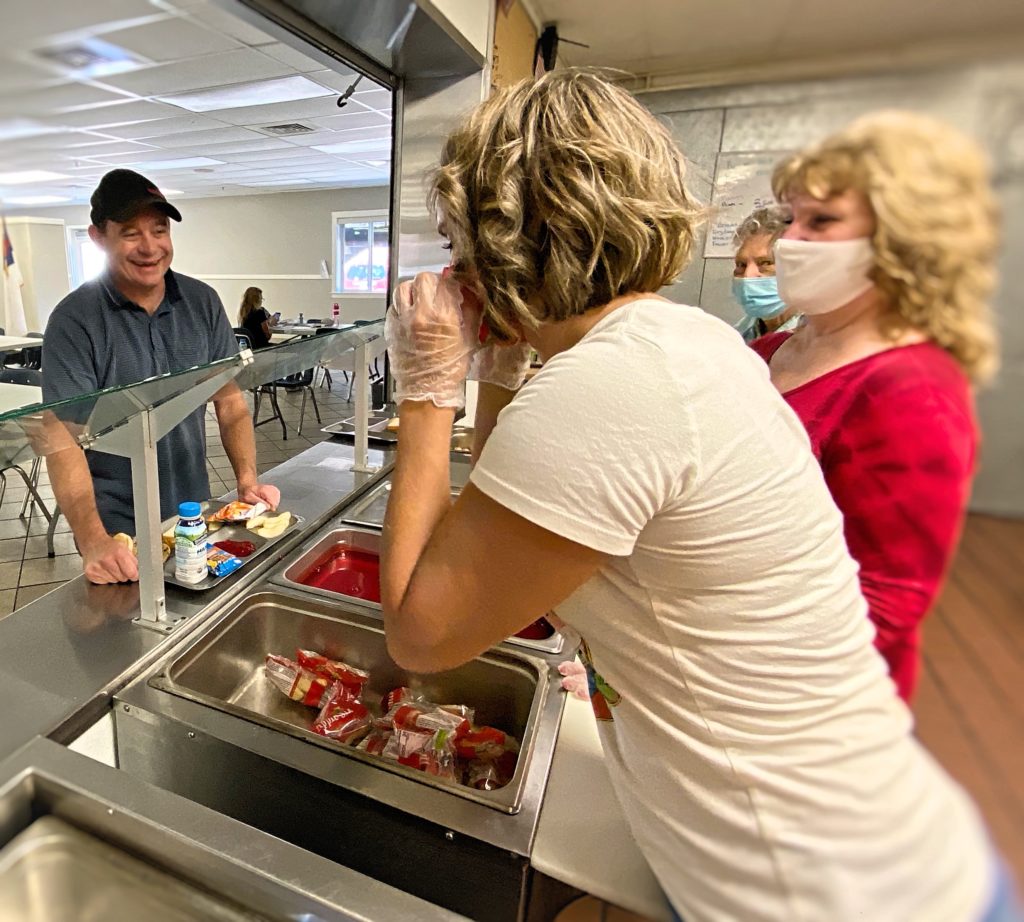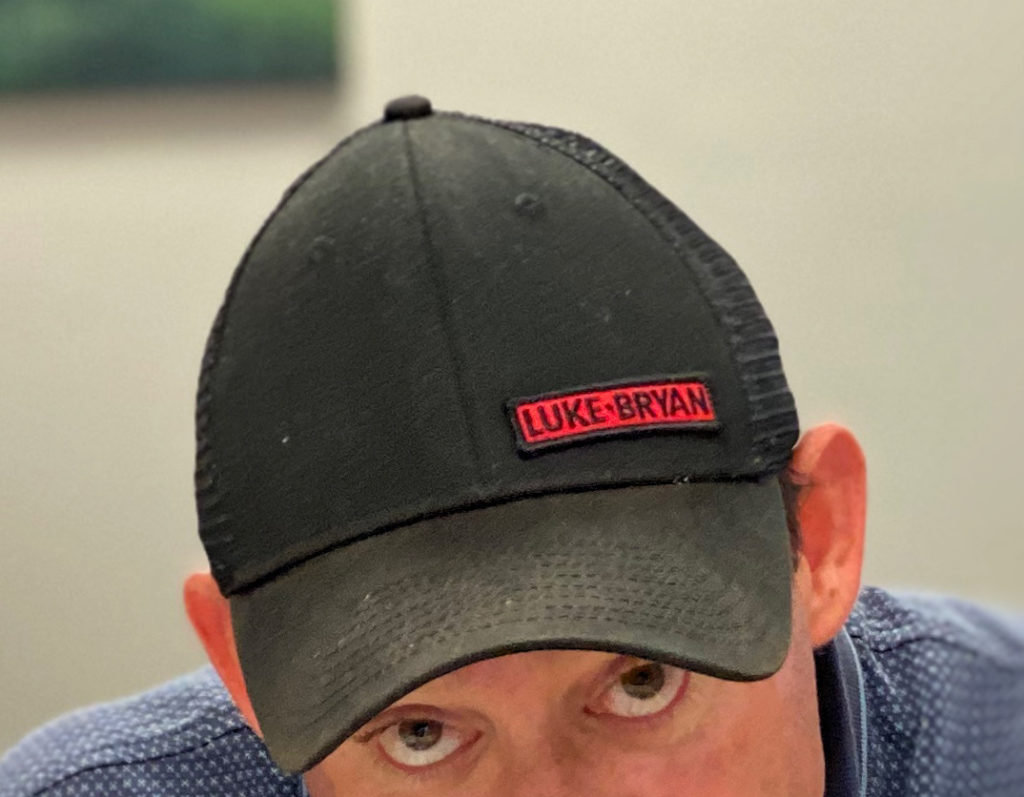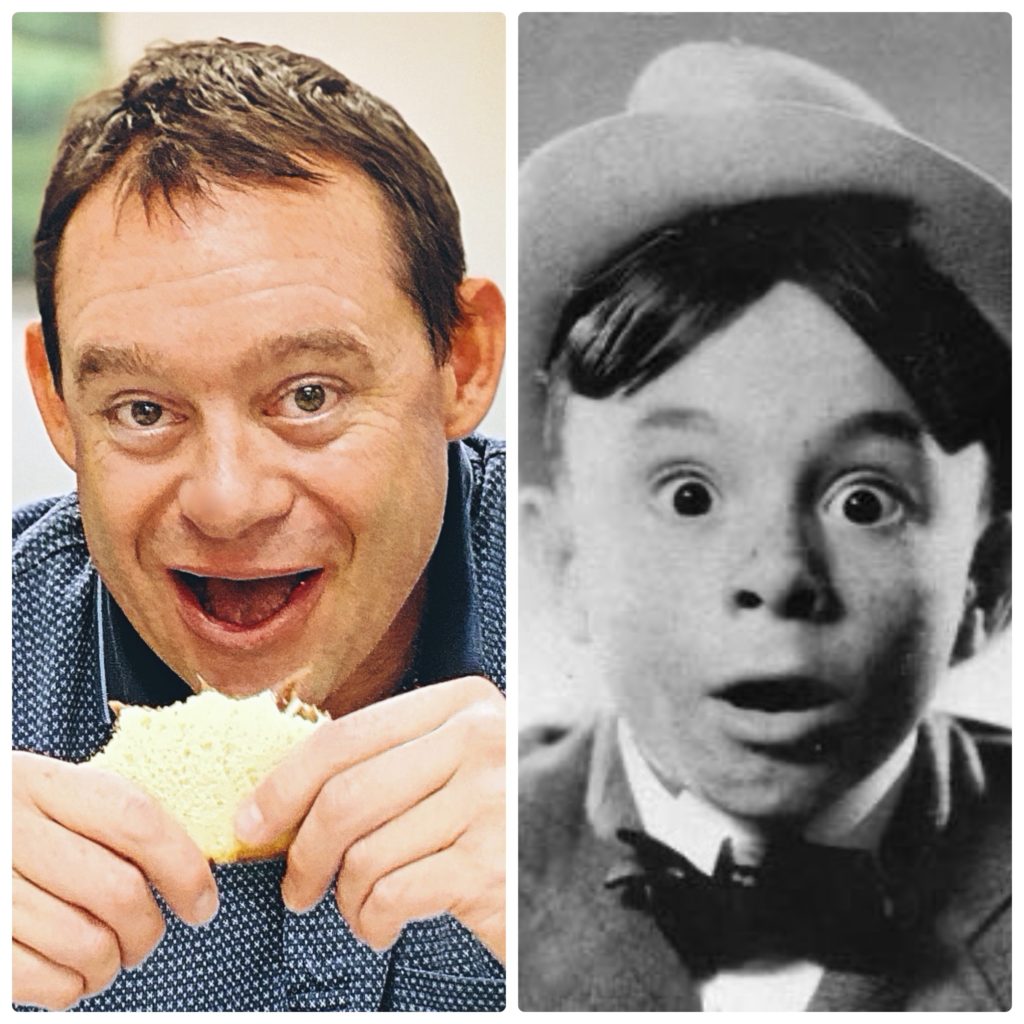Little Rascal: Hometown Boy Makes Good
Little Rascal: Hometown Boy Makes Good
Deven Daughterty is a warm, effusive and personable guy—truly one of a kind. He’s been teased that he looks a bit like Alfalfa in the iconic 50’s TV show, “Little Rascals.” The comparison between the two is immediately apparent—both characters share that wide-eyed, expressive and almost-moldable face. However, unlike the real Alfalfa, a child actor played by the long-since deceased Dean Switzer, Daughterty is determined that he’s going to have a better, not bitter, end. (Switzer died at age 31 in an altercation over a $25 debt.)
Despite his own troubled beginnings, Daughterty isn’t going to allow his checkered past to determine his future.
Daughterty hails from Lakehead, a small town in Shasta County with a population of approximately 800. The only point of interest about Lakehead is that it lies smack dab in the middle between Seattle and Los Angeles. It also offers the chance for tourists to be swallowed up by Lake Shasta Caverns, a popular attraction for people who like the feeling of being trapped underground.
Daughterty felt that way (trapped) most of his life, with his only way out through a bottle of booze … or worse. It got him into serious trouble—including more than a few stints in the slammer.
Longing to Belong
Unlike most of our New Life Recovery Program members and those who come to the Mission for a meal and a bed, Daughterty didn’t have a troubled childhood. “I grew up in a relatively privileged family that sat around the dinner table and talked about their day,” says Daughterty. “Maybe that’s why not having that experience while I was a vagabond—on the streets, couch surfing and in jail—helped me value the sense of belonging that I instantly felt at the Mission. I knew the difference.”

So, where did things go wrong? Daughterty’s troubles began around his senior year of high school, but really kicked into high gear after joining a college fraternity where he majored in drinking. For Daughterty and his frat brothers, it was “party hardy” most of the time. The difference between him and them, however, was that Daughterty couldn’t control his drinking. By the time he returned home, consuming copious amounts of alcohol had become, as he describes it, “an acceptable way to deal with stress.”
Smart, but Stuck
He wasn’t even sure he understood the source of that stress. All he knew is that he had always felt a tremendous pressure to perform—to live up to other people’s expectations of who and what he should be. “I was supposed to be the smart guy, but I could never find any direction for my life—of who I was or what I was intended to be,” says Daughterty. “I would take jobs that I ended up hating and I felt like I was just drifting. My life felt like that lyric from a Bob Dylan song: ‘Like a rolling stone, with no direction home.’ So, I kept on drinking and the more I drank the easier it was not to have to think about my life—or lack of one.”

Soon, Daughterty’s drinking escalated into public brawls. When he wasn’t a fun drunk, he was an angry one. After a while, getting jailed for his alcohol-fueled tirades didn’t even phase him. It became an acceptable pattern: he’d get jailed, then released the next day only to drink more, then jailed again. Anything he could indulge in to distract him from his lack of purpose and pervasive feeling of low self-esteem, he did.
“If you’d give a title to my story it would be ‘”Good Guy Goes Wrong,'” says Daughterty. “I had started with everything in life you think you’d need to be a success, including a stable, prosperous home with loving parents. Now my parents have a restraining order against me, and for good reason. That’s how far I fell.”
A Moral Conflict
In his last stint on the streets, Daughterty recalls experiencing some pretty humiliating moments for a guy born on “the right side of the tracks.” The worst, he says, was when he had to resort to stealing just to get something to eat. “I went into Raleys and just took some food. Of course, that went against everything I was raised to believe in, but I just told myself, ‘This is what I have to do to do in this situation.’ But the moral conflict inside was eating me alive.”

Hungry, alone and running out of couches to “surf,” Daughterty turned to a friend and asked him for a meal. His friend gave it to him, but then told him to go to the Good News Rescue Mission where he could get the help he needed. Daughterty took his advice, but it was not without considerable trepidation. “I was expecting to feel guilt and shame when I got here—instead I was met with total acceptance,” shares Daughterty. “When I would talk to them about my situation, my past, they’d tell me, ‘It’s totally okay—this is what we’re here for … to help you get your life back on track.’ Not once did I ever feel judged for who I was or what I had done.”

From Taker to Giver
Daughterty may have come to the Mission for a meal and a place to crash but what he got in return was so much more. “There I was sitting down eating a plate of food and I ended up talking to some random guy who told me about the New Life Recovery Program,” says Daughterty “Then I’d see other guys in the serving line who I actually knew—guys who were currently in that same recovery program. They looked and acted completely different than the guys I had known before; they had gone from takers to givers. That’s what motivated me to enroll in the program. It was a total ‘God thing’ from start to finish.”
Becoming real and vulnerable, versus resorting to manipulation and hustling to get what you want, is a new paradigm for many who have lived their life on the street and/or been trapped in the cycle of addiction—stuck in survival mode. It’s why the phrase, “He had to hit rock bottom before he could see a way out” is more than a trite phrase bandied about in the addiction recovery world. As Daughterty puts it, “When your down and out, it’s the best place to be to finally allow people to help you out.”

A Good and Hopeful Place
Daughterty describes where he is now as a “good place, a hopeful place.” I had go through some really tough times, where I was broken down and completely out of it, before I could allow God in to do what He wanted to do in my life. Because of everything I went through, I feel like I’m a lot more understanding and compassionate towards those who have gone through what I have,” says Daughterty. “Except now I’m becoming whole enough to actually help others. I’m becoming a giver versus a taker and that feels really, really good.”

“Before I came to the Mission, I felt I had to perform to be accepted. And obviously I failed at that!” exclaims Daughterty. Now I perform from acceptance—meaning I have a different motivation to do the right thing—to improve myself and help others through acts of service and words of encouragement. But I think I had to be in a community where I saw that modeled—of people who gave you acceptance before you even did anything worthy of acceptance, so to speak. That was a totally new concept for me, and it’s been a liberating one. There’s no other way of saying it.”
About the Author:
Jenni Keast is our marketing content coordinator and a lover of jean jackets, the Great Outdoors, photography and all things mid-century. Her favorite authors are Holy Spirit (the Bible) G.K. Chesterson, C.S. Lewis, Leif Enger and Walter Isaacson, to name just a few.
###


